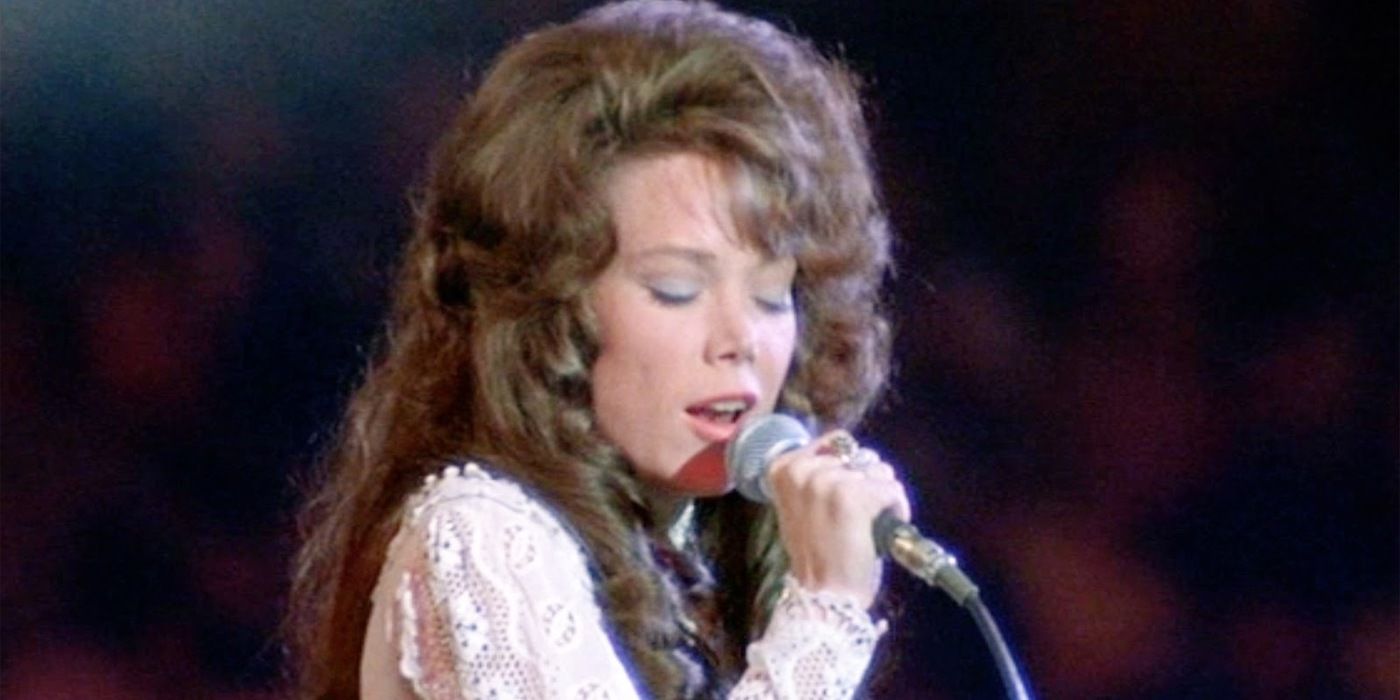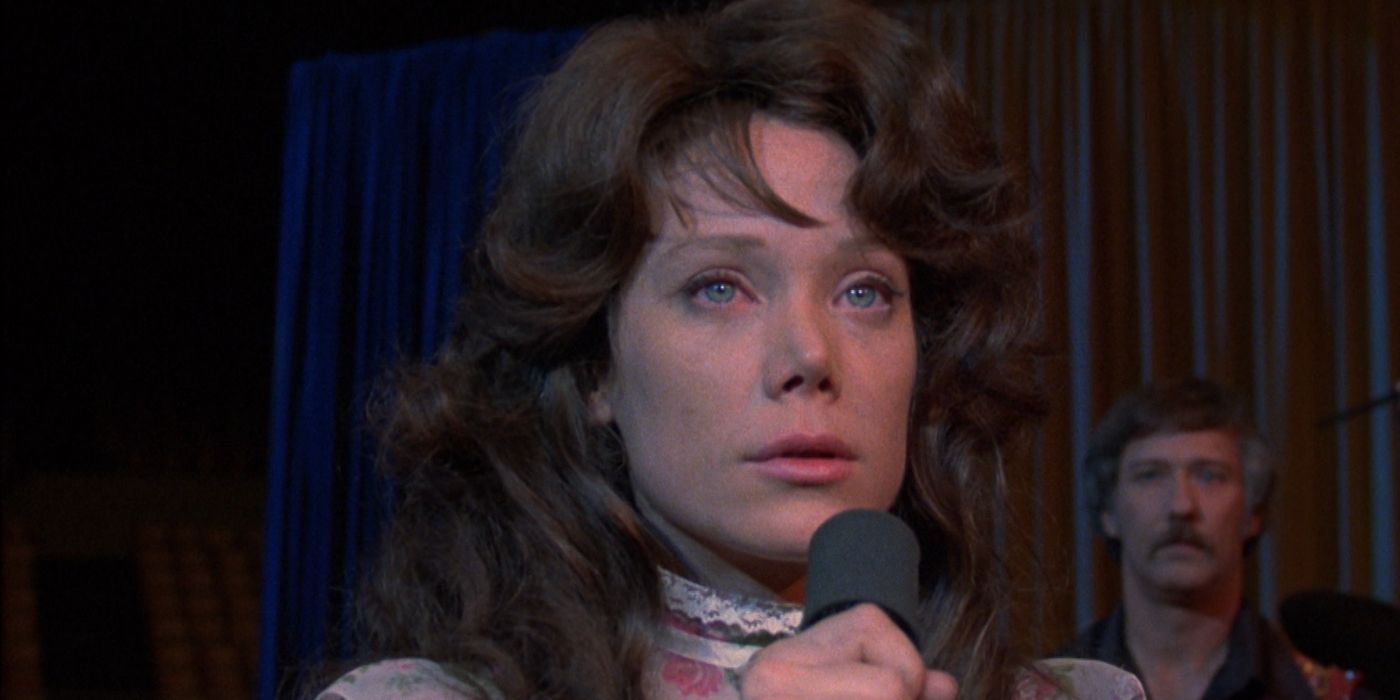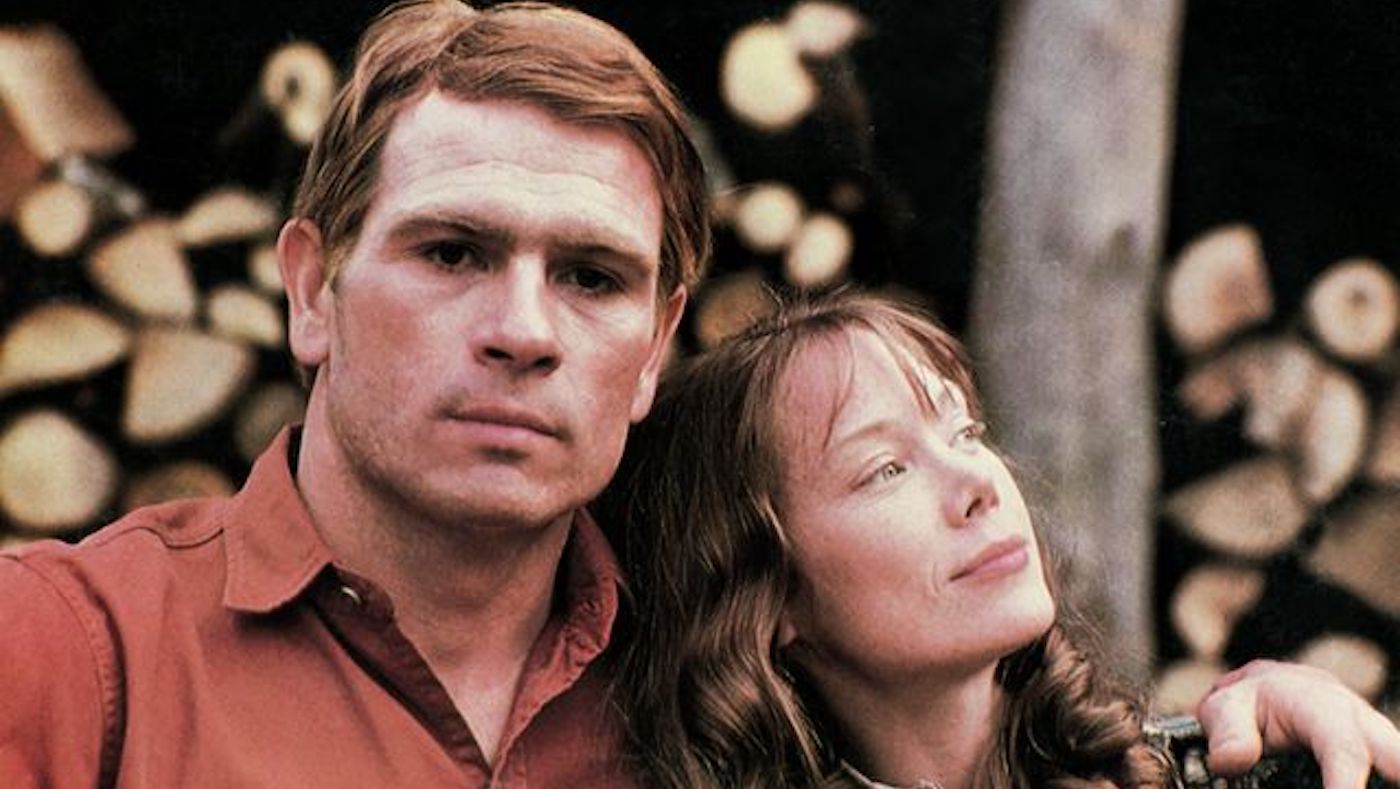The country music world lost a legend when Loretta Lynn passed away at the age of 90 on October 4th. From her beginnings as a coal miner's daughter in Butcher Hollow, Kentucky, to her reign as country queen with over 100 awards and honors to her name, including the Presidential Medal of Freedom, Lynn's life was the stuff Hollywood movies are made of. And in 1980, Hollywood made that movie, Coal Miner's Daughter, based on Lynn's own memoir. Celebrity biopics have been around practically as long as the movie industry itself; some have been great successes (like 1981's Frances and 2004's Ray), but many more have missed the mark (like 1991's The Doors and 2004's Beyond the Sea, Kevin Spacey's film about the life of crooner Bobby Darin).
The difference between success and failure is, of course, dependent on any number of factors, like the quality of the writing, the direction, and just how compelling the subject itself may be. But what truly makes a celebrity story captivating and convincing is the casting of the actor playing the celebrity. It's not enough for the actor to simply resemble the famous person they're portraying. They must also capture the celebrity's essence - what makes them tick, what makes them connect with audiences, and what makes them persuasive. Few actors did that better than Sissy Spacek in Coal Miner's Daughter. Spacek became Loretta Lynn, and in remembrance of Loretta Lynn's life and legacy, it's important to revisit Spacek's groundbreaking performance that became an homage to the country music superstar.
 Sissy Spacek Was An Unlikely Casting Choice
Sissy Spacek Was An Unlikely Casting Choice
At first glance, Spacek may have seemed to be the least likely person to portray the country icon. With her fine, blondish red hair, hazel eyes, and freckled face, her physical appearance didn't exactly match Lynn's, a woman with thick, brown hair, grey eyes, and porcelain-like skin. But it was actually Lynn herself who chose Spacek to play her on film. "She was looking through a pile of pictures and when she came to one of me, she said, 'That's her, that's the coal miner's daughter,'" Spacek said in a 1980 New York Times interview. Lynn saw beyond Spacek's appearance and knew instinctively that Spacek had an inner quality that would allow her to bring Lynn to life onscreen. Spacek was 30 years old when she filmed Coal Miner's Daughter, but she faced the seemingly insurmountable task of playing Lynn from ages 13 to 40, a challenge for even the most seasoned performer.
Yet, when Spacek first appears in the film as the impoverished teen living in a rickety shack with seven siblings, there isn't a moment where viewers question Spacek's authenticity. Aside from nailing the sound of Lynn's speaking voice and deep Kentucky accent, Spacek carries herself like a shy, awkward girl just entering adolescence, with posture somewhat inverted and eyes that seem afraid to look up and make direct contact. At the same time, however, Spacek is able to display the qualities of a mature woman, showing the weariness of an elder sibling forced to take on the role of second mother to the family. There's a hardness to Spacek's Lynn beneath the teenager's simplicity and virtue, and maybe that's what Lynn saw when she first looked at Spacek's picture. There's a scene near the beginning of the film where Loretta is at a town dance, with Spacek conveying all the joy and abandon of a 14-year-old girl getting the rare opportunity to let off some steam, giggle with her friends, and even flirt a little with Doolittle "Doo" Lynn (Tommy Lee Jones). But when her father says the fun is over and it's time to go home, that hardness comes across again. It's a subtle, but masterful transformation.
A Complex Performance Showing a Woman's Emotional Evolution
Although it's uncomfortable to watch the physical abuse Loretta suffered at the hands of her father and her husband, not to mention her marriage at age 15 to 22-year-old Doolittle, these events were part of Lynn's true story, and Spacek handles them sensitively. Yes, the young Loretta was uneducated, naive, and not fully prepared for adulthood, but she wasn't dumb and she wasn't a shrinking violet, and Spacek was especially adept at showing Lynn's complex personality. After her disastrous wedding night with Doo, when he tries to explain to her that she'll get "used to it," Loretta snaps back, "I ain't gonna get used to you gettin' on me and sweatin' like an old pig!" Spacek's delivery of that line is as hilarious as it is perfunctory. Boundaries have been established and there will be no further discussion. As Loretta learns to stand up to Doo and assert her independence, there is a physical change in Spacek, too. She stands taller, her voice is stronger; she looks him in the eye. These understated pieces of Spacek's performance helped capture Lynn's evolution as a woman; audiences felt like they were watching an old friend grow up before their eyes.
There's a tonal shift in the film following the death of Loretta's father. While still wide-eyed and not altogether sophisticated, Spacek presents a Loretta who's now more jaded and less trusting of what she sees happening around her. At her father's burial site, Doo teases Loretta a bit and asks her why she's brought plastic flowers to the graveside. Wearily, Loretta responds, "Because they don't die. The real ones just die, like everything else." Although only 27 years old at this point in the film, Spacek shows viewers Loretta at a pivotal point of maturity in her life. The world Loretta once knew is slipping away, and she's unsure how to navigate through one where she has no sure footing. As Doo encourages Loretta's singing, Spacek shows audiences a woman coming into her own and finding a greater purpose.
When a local radio DJ lies to Loretta and Doo about playing her record on the air, Loretta lets him have it in a takedown for the ages. Spacek is now portraying a woman who no longer sits back and lets others take control. Loretta Lynn is a force with which to be reckoned. When Loretta catches a drunken Doo in the backseat of a car with another woman, the innocent young girl who was once clueless about what the word "horny" meant has been replaced with someone who suffers no fools. "Woman, if you wanna keep that arm, you better get it off my husband," Loretta says calmly, yet sternly, before yanking Doo from the car. Later, in a public fight scene in which Doo hits Loretta, Loretta hits him back for the first time. The rage with which Spacek lashes out in the scene, and the sense of empowerment and release that comes with it, ignite the screen.
Spacek's Vocals Captured the Emotions in Lynn's Music
Then there's the voice. Spacek does all of her own singing in the film, and she was coached by Loretta Lynn herself. Spacek's emulation of Lynn's voice is so precise, it's difficult to distinguish between the two women's vocals. But it's more than Spacek's ability to replicate Lynn's sound and intonation that makes her singing so spectacular; it's Spacek's ability to capture the emotion within Lynn's songs themselves. Lynn was always able to express the feelings behind the words she sang - the anguish, delight, weariness, and fear. Spacek understood this and was able to channel what was at the heart of Lynn's songs. She wasn't just a mimic; she was an interpreter, and this is what elevates Spacek's portrayal of Lynn.
More than a "Rags to Riches" Tale
Perhaps Spacek's greatest accomplishment in Coal Miner's Daughter is the way in which she conveys all the complexity of a woman who gets more than she could have ever dreamed from life, and how it nearly destroys her. While Lynn's career is exploding, Lynn herself is imploding, and Spacek flawlessly reveals a woman barely hanging on. Her near breakdown during a concert performance is shattering, and it's arguably Spacek's finest moment in the film. "One day, I was just a little girl, and the next day, I was married and havin' babies. Next day, I was out here singin' for y'all." This simple piece of dialogue exemplifies the depth of Spacek's performance, from guileless child to young mother to international superstar. The story of Loretta Lynn was so much more than a "rags to riches" tale, and Spacek showed audiences all the happiness, pain, elation, and disappointment in the life of the music legend. The film redefined what a celebrity biopic could be, and Spacek's performance, still remembered and admired 42 years later, set a new standard.
Spacek and Lynn remained friends for years following the release of Coal Miner's Daughter. “Today is a sad day,” Spacek remarked in a statement to Deadline about Lynn's death. “The world lost a magnificent human being. Loretta Lynn was a great artist, a strong and resilient country music pioneer, and a precious friend. I am heartbroken." Thankfully, we will always have Spacek's outstanding performance as a lasting tribute to the legendary singer.


